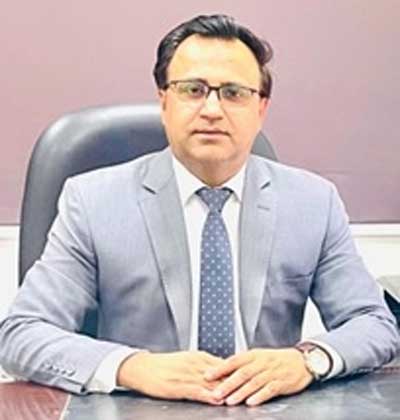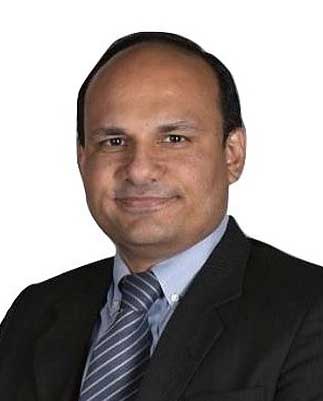Celebrations of cultural rituals are a norm in Pakistan. In this spirit, the Indus Cultural Forum proudly marked its decade with the Pakistan Mother Language Literature Festival, a testament to the country’s rich linguistic diversity and cultural heritage. Held in Islamabad during the last week of February 2025, this prestigious event has championed the cause of Pakistan’s mother tongues, creating a platform for literary figures, scholars, and policymakers. It stands as a vivid reflection of the power of language and patriotism.
This year’s three-day festival highlighted the essential role of language in shaping society and the need to preserve indigenous languages. Participants from across Pakistan gathered to discuss linguistic diversity, including parliamentarians, scholars, poets, academics, and cultural figures. Their presence underscored the importance of language beyond historical or political narratives, presenting it as an innovative tool for national unity and intellectual enrichment.
The festival provided a unique opportunity to engage in meaningful dialogue on the preservation of Pakistan’s mother tongues, bridging linguists, policymakers, and educators. It reinforced the idea that Pakistan is a nation united beyond caste, culture, and linguistic barriers. Every language carries significance, contributing to thought, ideology, and cultural continuity.
A key theme was the broader historical and cultural definition of “Indus.” Often mistakenly equated solely with Sindh or Sindhi culture, the Indus region extends from the Kalash Valley in the north to the Makran coast in the south, encompassing Gilgit-Baltistan, Khyber Pakhtunkhwa, Punjab, Sindh, and Balochistan. It is home to languages such as Kalasha, Pashto, Khowar, Shina, Hindko, Punjabi, Sindhi, Balochi, Brahui, and Seraiki. The discussion highlighted the Indus Valley Civilization’s impact, emphasizing its influence beyond Sindh and its role in shaping the entire subcontinent.
The event underscored that languages are not just tools of communication but also custodians of history, traditions, and collective identity. A nation’s strength lies in its linguistic and cultural richness. Countries that prioritize their native languages experience stronger social cohesion, enhanced cognitive development, and a deeper connection to their heritage. Language fosters human connections, enabling knowledge-sharing, emotional expression, poetry, and tradition.
Auguste Comte, a pioneer of modern sociology, identified language, religion, and the division of labor as the key unifying factors among people. Among these, language stands as the most fundamental, bridging divides and fostering understanding across communities. Even nature communicates in its way, maintaining order and discipline in the universe.
Through language, civilizations document histories, develop shared values, and cultivate a sense of belonging. Without it, cultural identities risk fading. The festival highlighted the indispensable role of language in shaping societies, encouraging inclusivity, and ensuring that every voice contributes to human progress.
Pakistan’s linguistic diversity represents a rich cultural mosaic. Without conscious efforts toward its promotion, these invaluable linguistic assets face extinction. The festival created a space to address challenges faced by indigenous languages through panel discussions, book launches, poetry recitals, storytelling, and academic discourse. It played a role in reducing cultural biases and promoting multilingualism.
Scholars discussed language’s role in social development, while poets and authors enriched the event with their creative expressions. Policymakers and educators deliberated on integrating mother tongues into the education system, ensuring linguistic diversity is both preserved and celebrated. Globalization through language fosters unity rather than division.
Marking its 10th year, the festival extended an open invitation to scholars, researchers, educators, and policymakers to join the movement for linguistic preservation. It was not just a celebration but a crucial step in recognizing Pakistan’s mother languages as integral to national development and unity.
Every language holds a treasure of knowledge, wisdom, and history. By embracing linguistic diversity, we pave the way for a more inclusive, intellectually rich, and culturally vibrant Pakistan. Let this festival be a milestone in safeguarding our mother tongues, honoring the voices of the past, empowering the present, and securing the future. With due care, we can preserve the contributions of great poets like Bhittai, Bulleh Shah, Khushal Khan Khattak, Waris Shah, Sachal, Rehman Baba, Bedil, Faiz, and Iqbal, whose poetic legacies embody the linguistic and cultural heritage of the Indus region.
Home Views & Opinions Pakistan mother languages literature festival: A decade of celebrating linguistic diversity
Sign in
Welcome! Log into your account
Forgot your password? Get help
Password recovery
Recover your password
A password will be e-mailed to you.





